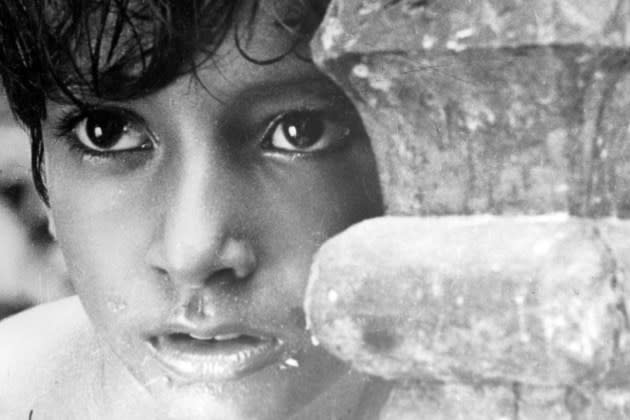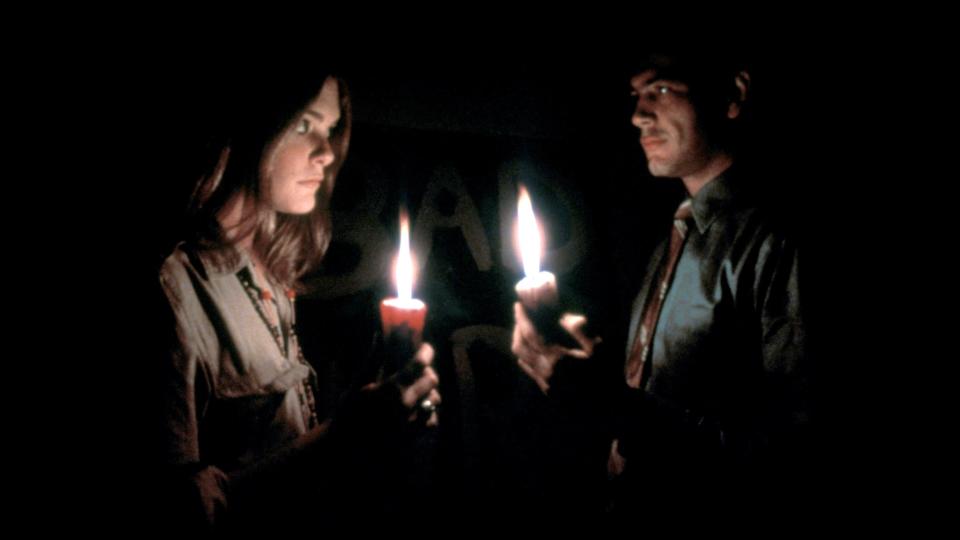Mannheim-Heidelberg Celebrates 70 Years With Retrospective, New Sections, Return to Theaters

Celebrating its 70th anniversary this year, the International Film Festival Mannheim-Heidelberg (IFFMH) is for the first time taking place in cinemas across both cities, introducing new sections, and looking back at its rich history with a special retrospective.
“Being 70 in a way is a starting point for reflection,” says festival director Sascha Keilholz. “What was the festival like in the past? What is it now? Where do we want to go in the future? The festival is in a transformational process that we started last year and was actually quite successful.”
More from Variety
Mannheim-Heidelberg Honors Bettina Brokemper, Claude Lelouch, Andrea Arnold, Guillaume Nicloux
Mannheim-Heidelberg Explores Growing Diversity, Timely Themes of World Cinema
'Great Freedom' Review: A Gay Convict Bides His Time for Change in This Terrific German Prison Drama
Indeed, after adopting a new brand image last year, the IFFMH won the 2021 German Brand Award for brand strategy and design.
After being forced online last year amid the pandemic, going back into theaters was one of this year’s main goals, Keilholz says. “This is more important than ever.”
In celebrating its return to cinemas as well as a precautionary move to keep social distancing in effect, the festival is for the first time ever screening films in each and every theater in Mannheim and Heidelberg. “It’s a very important message,” the fest director adds. “Our anniversary will mark our return to theaters.”
In Heidelberg, the event had in recent years taken place in festival tents. “This is a big change and it’s the first time that all the theaters are working together,” he notes. “We have eight different locations, which is quite something for our scale – we’re not an A-level festival. It’s kind of a decentralization and we’re now going back to the centers of the two cities.”
Another major anniversary event will be this year’s retrospective, which will reflect the festival’s past.
Keilholz and retrospective curator Hannes Brühwiler dug into the festival archives, reviewing several thousand films that screened at the festival over the past 70 years, making some interesting discoveries, including well known works like Haskell Wexler’s “Medium Cool.”
Considered one of the most influential movies of New Hollywood, the film follows a TV cameraman, played by Robert Forster, in 1968 Chicago amid the social upheaval that was shaking the U.S. and culminates in the riots that greeted the Democratic National Convention. The film won the festival’s Grand Prize in 1969.

Park Circus/Paramount
The oldest film of the retrospective is Satyajit Ray’s 1955 Indian classic film “Pather Panchali” (pictured).
While the two are big titles, Keilholz says the festival will also present little known but significant works. “We want the retrospective to be about rediscovery.” In addition to international films, including a number of Czech films, there are many films by female directors that are not very well known, he adds.
In a sign of solidarity with other festivals that struggled during the COVID-19 crisis, Mannheim-Heidelberg is inviting other international fests to take part in its celebration.
“An important thing is that we are part of a festival community,” Keilholz notes. “We took part with Thessaloniki and others last year to say we need geo-blocking, for example. This year we wanted to share our anniversary with festivals from all over the world.”
As part of a special new Festival Spotlight anniversary section, representatives from five festivals, from Burkina Faso, Israel, Canada, Spain and Germany, will be presenting films that were part of their programs this year. The lineup includes:
Omar El Zohairy’s Egyptain film “Feathers,” presented by the Pan-African Film and Television Festival of Ouagadougou (FESPACO);
“Freizeit or: The Opposite of Doing Nothing,” Caroline Pitzen’s documentary about Berlin teenagers, presented by the Berlin Critics’ Week;
Sebastian Meise’s German drama “Great Freedom,” presented by the Jerusalem Film Festival;
“The Innocents,” Eskil Vogt’s Norwegian supernatural thriller, presented by Sitges’ International Fantastic Film Festival of Catalonia;
Philippe Grégoire’s Canadian drama “The Noise of Engines,” presented by Montréal’s Festival du Nouveau Cinéma.
The aim, says IFFMH head of program Frédéric Jaeger, is to find “new points of entry into the broad possibilities of cinema.” In addition to highlighting up and coming new filmmakers in its main sections, the festival is also inviting people who are passionate about showing films and the traditions of festivals. “I think it will be particularly interesting, for example, to see the Jerusalem Film Festival’s presentation of “Great Freedom,” which is a German film. Maybe they have a different view of the films than we do.”
IFFMH’s other new anniversary section, Film Experience, provides fest organizers with the opportunity to show the many films they couldn’t include in the main On the Rise and Pushing Boundaries sections. Among the films unspooling in the sidebar are “A Night of Knowing Nothing,” Payal Kapadia’s documentary about university student life in India; and Alexandre Koberidze’s Georgian drama “What Do We See When We Look at the Sky?”
Best of Variety
Oscars Predictions: Best Picture - 'House of Gucci' and 'Licorice Pizza' Begin to Screen
Oscars Predictions: Best Director - Chloé Zhao to Join Kathryn Bigelow as Second Female Winner
Sign up for Variety’s Newsletter. For the latest news, follow us on Facebook, Twitter, and Instagram.
